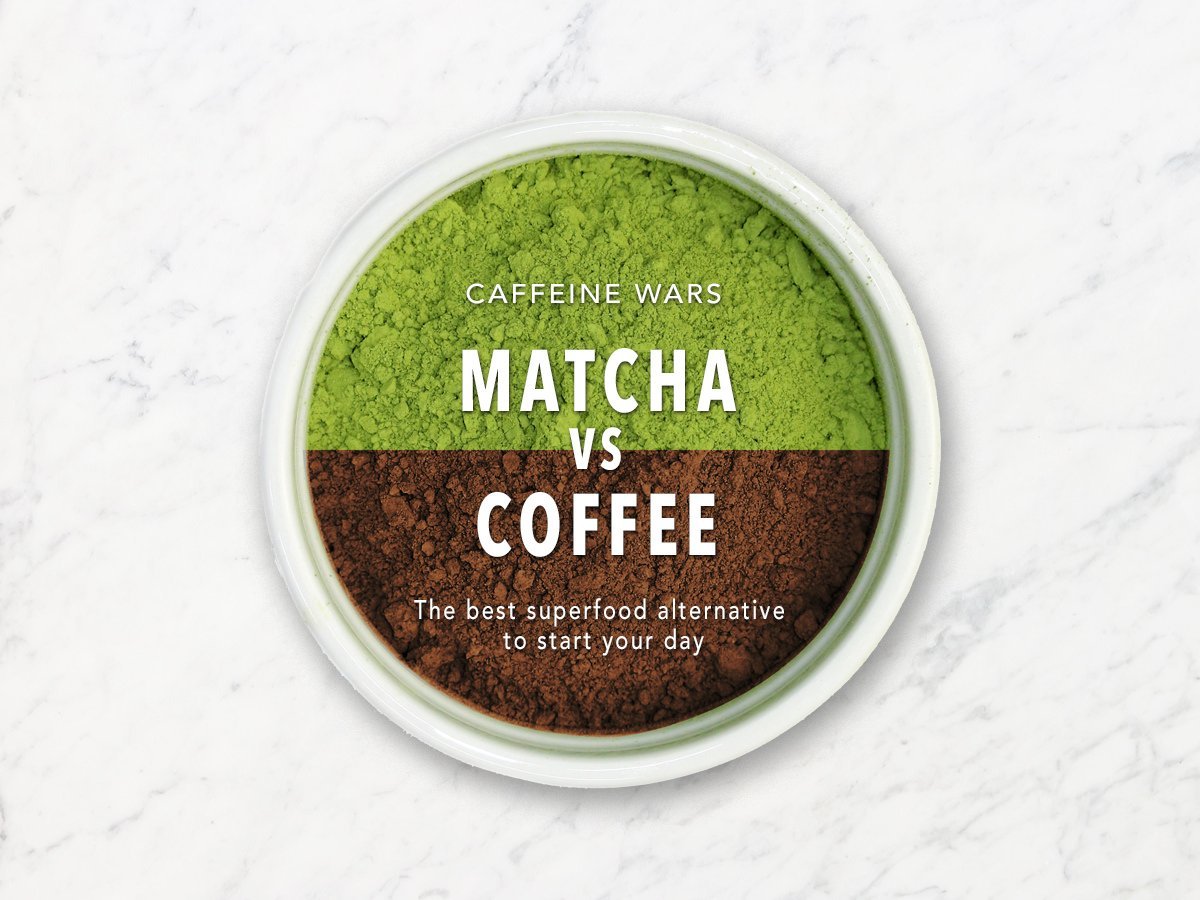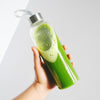Caffeine Wars - Matcha vs Coffee

History and Popularity
Coffee has been around since the 15th century and some would say that we're living in what can only be described as a coffee renaissance. Coffee uptake in Australia has risen dramatically over the last few years and this can be attributed to a boom in local cafes roasting their own beans and brewing some of the finest roasts that you can get anywhere in the world.
Matcha, on the other hand, has only just started to make its emergence in the western world. Well, in fact, Matcha traces back to the 11th century and has been seen in the hands of legendary Buddhist monks, celebrities, athletes and of course the list goes on.

So in terms of popularity and uptake. Coffee wins hand down. But what if you're not into coffee? Don't people who aren't into coffee deserve a pick-me-up too?
Caffeine and Energy levels
The caffeine level in Matcha is far less when compared to coffee. Matcha powder green tea has about 70mg of caffeine compared to an espresso shot with about 150mg of caffeine. Drinking 2-3 cups of coffee per day increases the insulin and adrenaline glucose levels in your body. The result is a higher heart rate which could make you feel anxious, jittery and nervous.
What Matcha lacks in caffeine, it makes up with things like L-Theanine amino acid that produces a calming effect in the body and allows the alertness levels caused by caffeine to keep you focused for longer.
In other words, while the caffeine in the coffee will only keep you focused for an hour or two, the caffeine in Matcha can prolong the slow release of energy over a period of 3 - 7 hours.

Matcha wins over coffee as the ultimate energy boost.
Antioxidants and Well-being
Antioxidants are “cleaners” and oxidise free radicals in the body to form harmless substances that can then be flushed out of the bloodstream and body, naturally. They restrict the oxidation of various molecules in the body that cause illnesses, diseases, and aging. The more antioxidants in your body, the less chance you have of getting sick. The best way to get antioxidants is to eat whole (real) foods.
Matcha has significantly more antioxidants because you are drinking the entire dried leaf and absorbing all of the nutrients that Matcha has to offer. In fact, Matcha has around 63,000 ORAC units which is 50 times greater than the amount found in regular green tea.
The important antioxidants found in Matcha are catechins, polyphenols, flavonoids, and epigallocatechin gallate (EGCG) which are all known to fight of free radicals in your body.
Detoxifying the body
Unlike coffee, Matcha contains Chlorophyll which is known to be a natural detoxifier. It promotes the blood's capacity to deliver oxygen and other nutrients to cells within the body, cleansing the body at the molecular and cellular levels. In other words, chlorophyll relieves the body of toxins, impurities, and heavy metals. The contents of matcha tea do not end here. Matcha has a combination of iron, potassium, protein, calcium, vitamin A, vitamin C. This combination is a potent source of boosting your immune system and aiding your digestive system.
Weight Loss
Coffee and Matcha are known to increase the metabolism rate. However, Matcha wins over coffee on this factor too.
Matcha naturally improves insulin sensitivity (improve your body’s ability to use carbs as energy) and cranks up your daytime thermogenesis (your body’s rate of burning calories) from 10% to 40% daily energy expenditure.
This increase in metabolism means you can potentially burn fat 4 times more efficiently! Moreover, researchers have also found evidence that matcha can intensify your physical endurance up to 24%, thereby enhancing exercise-induced loss of belly fat.
Skin Care
The antibacterial properties in Matcha help clear up acne and has been used for centuries by Japanese women as a facial mask. Matcha’s antibacterial properties help to give skin a natural glow.
Oral Hygiene
Matcha contains antibacterial properties that can help in preventing teeth from plaque build up. Thus, it is a perfect source of improving general health. Coffee, on the other hand, causes bad breath.










